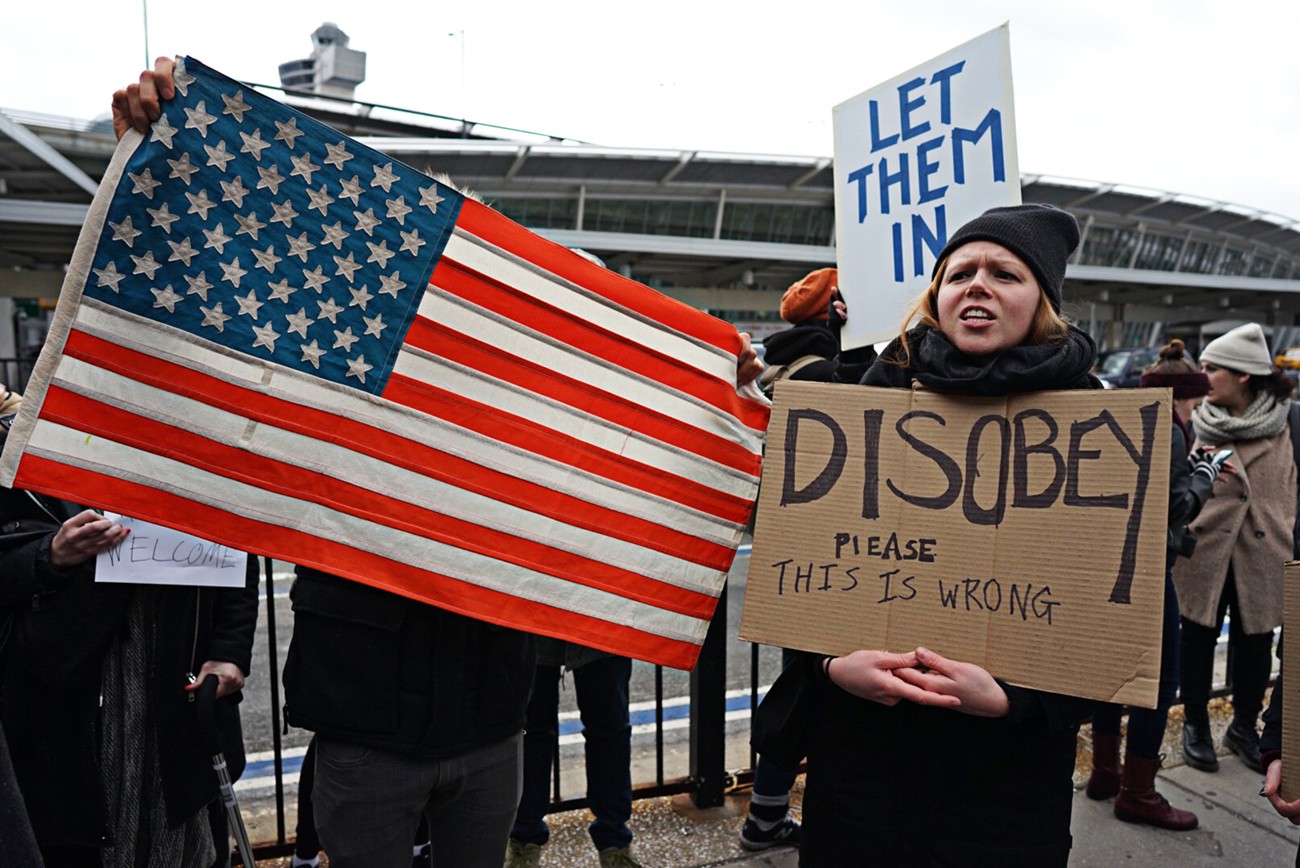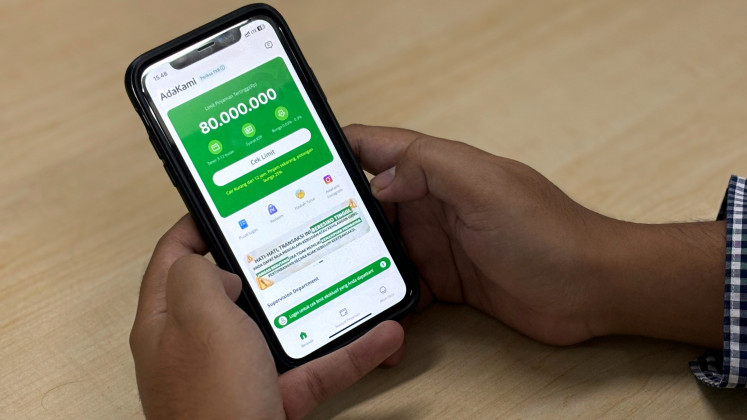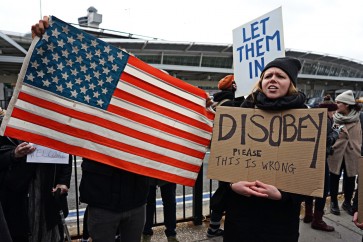Popular Reads
Top Results
Can't find what you're looking for?
View all search resultsPopular Reads
Top Results
Can't find what you're looking for?
View all search resultsIndonesia, US fight against intolerance
At the individual level among Indonesian people, there is a growing perception of Islamophobia and xenophobia in America.
Change text size
Gift Premium Articles
to Anyone
 "Let them in" -- Protesters assemble at John F. Kennedy International Airport in New York on Jan. 28 after two Iraqi refugees were detained while trying to enter the country. On Jan. 27, President Donald Trump signed an executive order suspending all immigration from countries with terrorism concerns for 90 days. Countries included in the ban are Iraq, Syria, Iran, Sudan, Libya, Somalia and Yemen, which are all Muslim-majority nations. (AP/Craig Ruttle)
"Let them in" -- Protesters assemble at John F. Kennedy International Airport in New York on Jan. 28 after two Iraqi refugees were detained while trying to enter the country. On Jan. 27, President Donald Trump signed an executive order suspending all immigration from countries with terrorism concerns for 90 days. Countries included in the ban are Iraq, Syria, Iran, Sudan, Libya, Somalia and Yemen, which are all Muslim-majority nations. (AP/Craig Ruttle)
I
ndonesians are right to be wary of United States President Donald Trump’s executive order on immigration, which temporarily bans travel and immigration by people from seven Muslim-majority countries. Indonesia is not one of the seven countries affected and it is wholly possible that President Trump will never issue a travel or immigration ban that directly affects Indonesian citizens.
Even if Indonesians remain free to travel to the US, the damage to US-Indonesia relations is substantial, with ripple effects from top diplomatic levels to the grassroots. Indonesian Foreign Minister Retno LP Marsudi has expressed Indonesia’s “deep regret” at the executive order, pointing out that the policy, which discriminates on the basis of religion, hampers efforts for international cooperation in the fight against terrorism.
At the individual level among Indonesian people, there is a growing perception of Islamophobia and xenophobia in America.
Let me share a few examples of how average Indonesians have expressed their concerns. As an American researching education and literacy in Indonesia, I come into daily contact with people from different religious, socioeconomic, linguistic and ethnic groups. In the months after the November 2016 American presidential election, on the back of an ojek (motorbike taxi), in alleyways outside schools in North Jakarta, in cafes full of students, I have repeatedly been asked the same thing: is it true that President Trump and Americans are Islamophobic?
Other American researchers, teachers and visitors across the archipelago have also reported being asked this question on the streets, on campuses and in public spaces, and of course this question has only become more salient in the last week since the travel ban was issued.
When Indonesian university students find out that I am a Fulbright scholarship holder, they ask if it is still safe to study in the US, or whether they should instead pursue scholarship opportunities to study in Germany, Singapore or New Zealand.
Indonesian friends who currently live in the US fear that the immigration ban will be expanded to include more Muslimmajority countries, and are concerned that if they come back to visit Indonesia, they may not be able to return to the US to continue their studies or work.

















